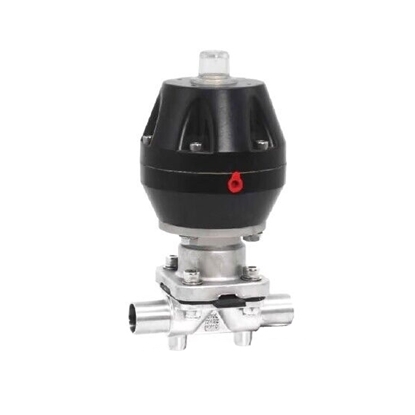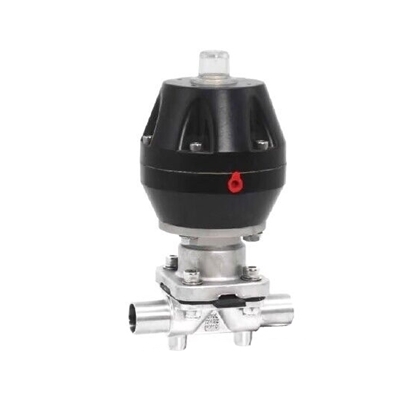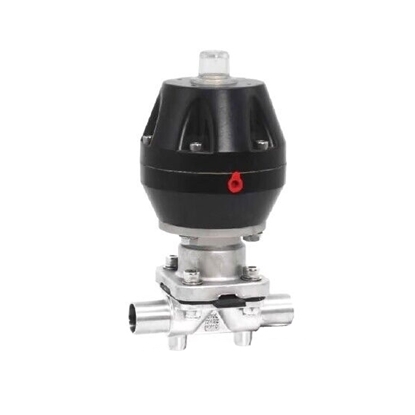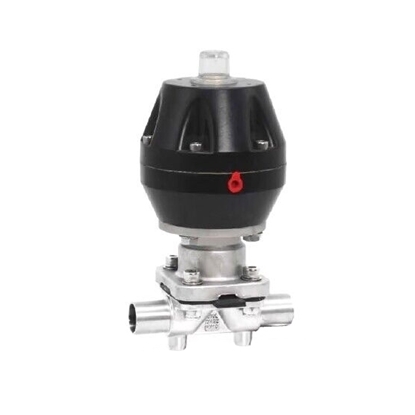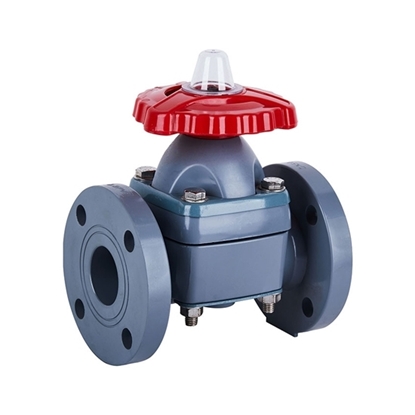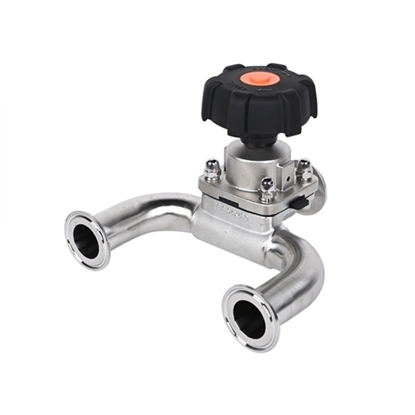Diaphragm Valves
1 1/4" Pneumatic Diaphragm Valve, Sanitary
1 1/2" Pneumatic Diaphragm Valve, Sanitary
2" Pneumatic Diaphragm Valve, Sanitary
3" Pneumatic Diaphragm Valve, Sanitary
1" Flanged Diaphragm Valve, UPVC/ CPVC
1" 3 Way Diaphragm Valve
Pneumatic diaphragm valve is a type of valve that uses a flexible diaphragm to regulate the flow of fluid or gas, consisting of a body, a diaphragm, and a pneumatic actuator.
ATO offers 1/2", 3/4", 1" to 3" sanitary diaphragm valves, weir type, welded, double diaphragm, suitable for applications where precise control of fluid or gas flow is required, such as in chemical processing, pharmaceutical manufacturing and water treatment. Normally open, normally closed and double-acting actuator types are available. Reliable diaphragm actuator valve is also able to operate at high temperatures and pressures.
Pneumatic Actuator for Diaphragm Valve
Diaphragm valves need a pneumatic actuator to open and close the valve. The diaphragm itself cannot provide enough force to actuate the valve, so an actuator is required. The actuator generates the force required to move the diaphragm and open or close the valve. Actuators also allow for remote control and automation of diaphragm valves in industrial process control systems. Pneumatic actuators are a popular choice for diaphragm valves because they are efficient, reliable, precise, and cost-effective. Compressed air is readily available in most industrial settings, and pneumatic actuators are known for their durability and long service life. A 1/2"~ 3" diaphragm valve equipped with a pneumatic actuator is called a pneumatic diaphragm valve.
Reason for Choosing a Sanitary Diaphragm Valve
Sanitary diaphragm valves are a popular choice in industries such as food and beverage, pharmaceuticals, and biotechnology because they offer a number of advantages over other types of valves. Here are some reasons why you might choose to use sanitary diaphragm valves:
- Easy to clean and maintain: Sanitary diaphragm valves are designed to be easy to clean and maintain, which is important in industries where hygiene and cleanliness are critical. The valve body is typically made of stainless steel and is polished to a smooth surface finish that resists bacterial growth and is easy to clean.
- Minimal product contamination: Sanitary diaphragm valves are designed to minimize product contamination. The diaphragm acts as a barrier between the valve body and the fluid being processed, preventing any contact between the two. This is especially important in industries where the purity of the product is critical, such as in the production of pharmaceuticals or biotech products.
- Reliable and consistent performance: Sanitary diaphragm valves are known for their reliable and consistent performance. They offer excellent flow control, even at low pressures, and are highly resistant to corrosion and wear.
- Versatility: Sanitary diaphragm valves can be used with a wide range of fluids, including corrosive and abrasive media. They are also suitable for use in a range of temperatures and pressures.
- Compliance with industry standards: Sanitary diaphragm valves are designed to meet or exceed industry standards for cleanliness, hygiene, and safety. They are often required in industries that are subject to strict regulatory standards, such as the food and beverage industry or the pharmaceutical industry.
Advantages of Stainless Steel Diaphragm Valve
- Corrosion resistance: Stainless steel is highly resistant to corrosion, making it ideal for use in harsh chemical and process environments. Stainless steel diaphragm valves are resistant to both rust and oxidation, ensuring long service life.
- High strength: Stainless steel is a strong and durable material, providing the necessary mechanical strength to withstand high pressure and flow rates.
- Cleanability: Stainless steel is easy to clean, making it an ideal material for applications where hygiene is critical. Stainless steel diaphragm valves can be easily cleaned and sterilized, ensuring that they meet the high standards of cleanliness required in pharmaceutical and food processing industries.
- Compatibility: Stainless steel is compatible with a wide range of fluids and chemicals, making it a versatile material for use in many different applications.
- Temperature resistance: Stainless steel diaphragm valves can withstand high temperatures, making them ideal for use in high-temperature applications.
- Long service life: Stainless steel is a durable material that can provide long service life, reducing the need for frequent maintenance or replacement.
Stainless steel diaphragm valves offer a combination of corrosion resistance, strength, cleanability, compatibility, temperature resistance, and long service life that make them an ideal choice for a wide range of industrial applications.
Tips for Using a Pneumatic Diaphragm Valve
- Proper installation: It is important to ensure that the pneumatic diaphragm valve is properly installed in the system. The valve should be installed in the correct orientation and direction of flow, and all connections and fittings should be tightened properly.
- Air supply: The pneumatic diaphragm valve requires a source of compressed air to operate. It is important to ensure that the air supply is properly regulated and filtered to prevent damage to the valve.
- Operating pressure: The pneumatic diaphragm valve should be operated within its specified pressure range. Over-pressurizing the valve can cause damage to the diaphragm and other components.
- Control signal: The control signal to the valve should be stable and consistent. Fluctuations or disturbances in the signal can cause the valve to operate erratically or malfunction.
- Maintenance: Regular maintenance is important for ensuring the reliable and efficient operation of the pneumatic diaphragm valve. This may include cleaning, lubrication, and replacement of worn or damaged components.
- Testing: It is recommended to test the valve periodically to ensure that it is functioning properly. This may include testing the response time, leakage, and overall performance of the valve.
Filter by:
Clear All
